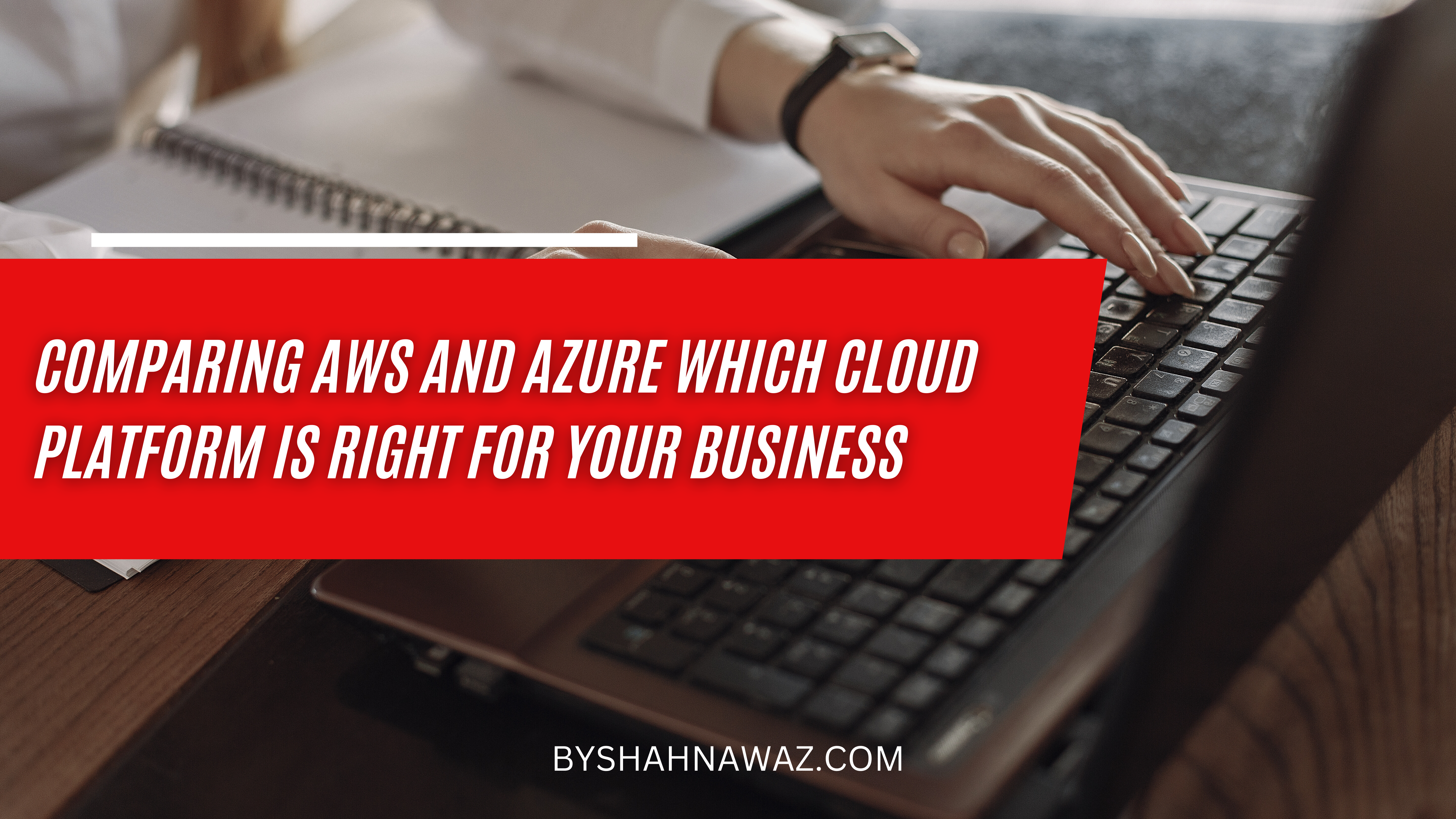Comparing AWS and Azure. Which Cloud Platform Is Right for Your Business

Amazon Web Services (AWS) and Microsoft Azure, two of the major cloud service providers, are at the vanguard of the quickly growing digital sector. They offer a comprehensive portfolio of tools that empower businesses to streamline their cloud migration, develop cloud-based applications, and efficiently manage their cloud-related expenses. However, selecting the right platform amongst these offerings necessitates thoughtful evaluation. This article strives to equip you with insights on AWS and Azure, assisting you in making an informed decision.
Cloud Platform Comparison
The 2006 introduction of AWS has earned it the title of cloud computing pioneer. It offers a broad set of global computing, storage, database, analytics, application, and deployment services. The focus of Azure, on the other hand, is on developing, testing, setting up, and managing software and services through Microsoft-managed data centres since its launch in 2010 While AWS holds the edge in terms of market share, Azure has robust integration with Microsoft's software suite, making it an appealing option for businesses entrenched in Microsoft's ecosystem. Both platforms offer similar core features like computing power, storage options, and cloud backup and disaster recovery capabilities.
Choosing Cloud Solutions
Cloud security considerations are paramount when selecting a cloud service provider. Strong security features, like encrypted data, safety credentials, and multi-factor authentication, are offered by both AWS and Azure. Cost is another critical factor. AWS and Azure have complex pricing models, and understanding them is essential for effective cloud cost management. While AWS charges per hour, Azure bills per minute, potentially offering more cost-effective options for shorter tasks.
AWS vs Azure Evaluation

Both platforms provide a range of resources for creating cloud-based applications. However, AWS provides a more extensive selection of offerings compared to Azure. On the contrary, Azure's seamless integration with other Microsoft products may be more beneficial for businesses already using this suite. Both AWS and Azure provide multi-cloud management solutions that enable companies to manage resources across several cloud environments. Your decision may, however, be influenced by the particular qualities that your company needs. In terms of cloud performance optimization, AWS generally provides more options and flexibility, which might give it an advantage for certain use cases. On the other hand, Azure's offerings are continually evolving and improving. Finally, both AWS and Azure offer robust cloud backup and disaster recovery solutions. Your particular requirements, including the volume of data to be stored up and the desired recovery period, will, however, affect which option is best.
Conclusion
One size does not fit all when comparing AWS with Azure. It depends on various factors, including your business needs, budget, cloud security considerations, and existing software ecosystems. Both platforms offer a range of services to aid in cloud migration, application development, and cloud cost management. They also provide multi-cloud management solutions and tools for cloud performance optimization, backup, and recovery. Ultimately, understanding your business's unique needs is the key to selecting the right cloud service provider.
